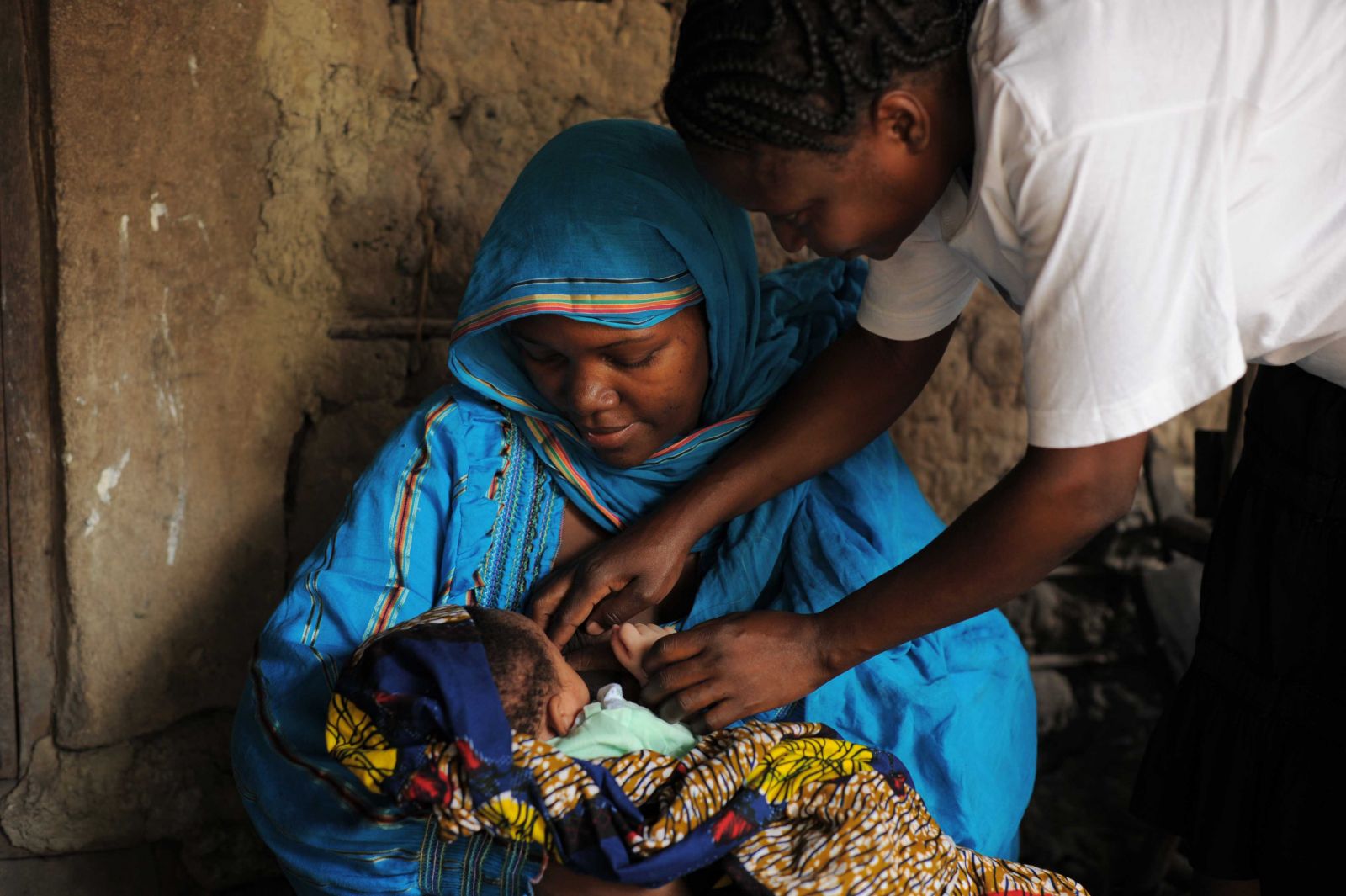With World Breastfeeding Week coming to a close, Callum Northcote, RESULTS UK’s Policy Advocacy Officer for nutrition, reviews this year’s World Health Assembly breastfeeding resolution, which has since attracted global media attention.
I want to believe, as per a 9 July tweet, that Donald Trump and his team care about malnutrition and poverty. I want to believe that their approach at the World Health Assembly was misinformed rather than anything nefarious. I want to believe, as perhaps the pre-eminent global power, that the US does strongly support breastfeeding. And yet there is something deeply unsettling about the President of the United States of America’s reaction to a New York Times article covering the US and breastfeeding. Two words undo the hyperbole. Fake news.
All this is pinned on a particular resolution at this year’s World Health Assembly (WHA) in May. Resolutions are agreed by the Member States and urge them, and the World Health Assembly, to act in certain ways on important health issues. This year, Ecuador led on the production of a resolution on breastfeeding. I saw the draft of it. At its heart was the promotion of policy which would reduce malnutrition and not propagate poverty. Reading through it there was nothing in it which alarmed me. It contained recommendations for Member States and the WHO to promote breastfeeding.

Why breastfeeding? Save the Children’s recent report, Don’t Push It, is categorical as to why. ‘Children who are breastfed for longer periods suffer less from infectious diseases and are less likely to die’. It also helps to prevent maternal breast cancer. It’s that simple. Breastfeeding staves off diseases and boosts survival rates. This provides economic benefits on top of this. It is a proven and successful health intervention.
Of course, for some women it isn’t possible. Some women may choose not to breastfeed. That is completely their choice and the resolution was not promoting discriminatory practices against the freedom to choose. What the resolution was opposed to was the inappropriate marketing of breast-milk substitutes. These are two very different things. An individual making an informed choice about the best path for them and their child is their right as a parent. An individual being coerced into choosing a path which is not in their or their child’s best interest, through aggressive marketing, is a whole other kettle of fish. The infamous Nestlé scandal of the 1970s shone a light on this practice of mothers living in poverty being pushed into purchasing substitute through marketing practices. This helped to push for the creation of the International Code of Marketing of Breast-milk Substitutes at the WHA in 1981 to limit this behaviour, but for some businesses it carries on.
Negotiations around the resolution in May went off like I have not seen at WHA previously. As was reported by the New York Times, the US threatened to withdraw military aid and impose punishing trade measures on Ecuador if they tabled the resolution. According to the report, the US was ‘embracing the interests of infant formula manufacturers’. It would certainly be in the interests of the providers of breast milk substitutes to have had a watered-down resolution. Lack of strong language would have provided a green light to breastmilk substitute companies to act in a more aggressive manner. And, as Action Against Hunger reported in March 2018 – this is already a big issue.
Frantic work from many actors helped ensure a resolution passed, but not without incident, long negotiations, and the weakening of the original text. Had it not been for nutrition advocates and committed Member States, a far weaker, US-tabled resolution, may have passed.
We are nearing the end of 2018’s World Breastfeeding Week, just a few months after the events at WHA. Coinciding with the start of the week of awareness raising, a WHO report showed the scale of the problem. They estimate that 78 million babies, three out of every five born, are not breastfed within the first hour of their life. They may instead be fed with formula. Babies born in low- and middle-income countries are disproportionately affected. Only around 40% of children aged 0-6 months are exclusively breastfed. Global support from all actors for the best information to be made available to new mothers wherever they live in the world is not a crazy suggestion. Without it, we will not reach SDG2 and the geography of birth will continue to inform a child’s chance to equality in their development.